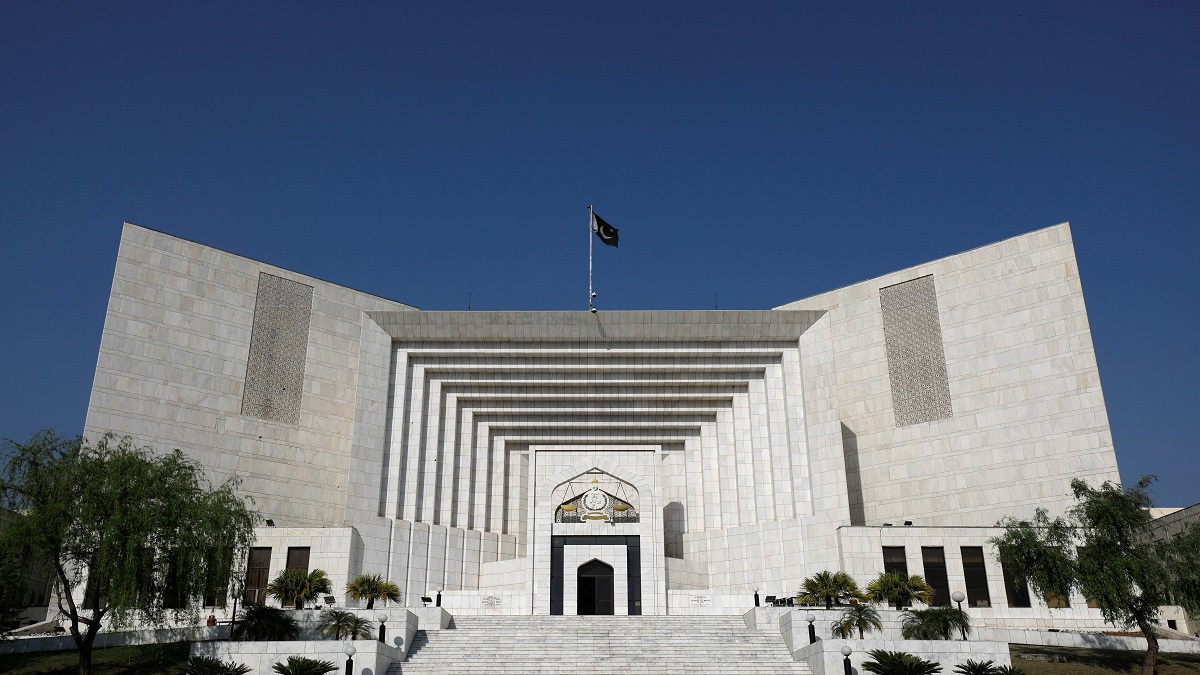Despite the unanimous endorsement by the Judicial Commission of Pakistan (JCP) of Peshawar High Court Chief Justice Musarrat Hilali’s promotion to the Supreme Court, the prospect of quelling judicial politics within the highest court appears far from reality.
Following the latest JCP gathering, Justice Qazi Faez Isa, a senior puisne judge, commended Chief Justice Umar Ata Bandial for orchestrating the session. This meeting marked the first in nearly eight months and was particularly significant due to Justice Isa’s key role in advocating for Hilali’s elevation.
Former additional attorney general, Tariq Mahmood Khokhar, has contended that Hilali’s appointment catalyzes a systemic power shift within the judiciary. He implies that this shift might be to the disadvantage of the current chief justice of Pakistan. Following Justice Hilali’s rise, legal pundits anticipate a bolstering of Justice Isa’s influence within the Supreme Court.
The top court has been shrouded in controversy over judicial appointments since the reign of ex-Chief Justice Saqib Nisar. The schism lies in the divergence of views concerning the promotion of junior judges and adherence to seniority in appointments. This dispute was evident in the recent non-seniority-based appointment of four top court judges, despite a pending vacancy for a Sindh judge.
A casual debate among the commission members revolved around the potential nomination of Sindh High Court Chief Justice Ahmed Ali Sheikh to the Supreme Court. Despite support from Chief Justice Bandial and two others, a majority showed reservations due to Sheikh’s imminent retirement.
There’s also a notable undercurrent of dissatisfaction within the interior Sindh over the neglect of an ethnic Sindhi judge’s elevation to the Supreme Court for the past six years. Interestingly, the Sindh High Court Bar Association has chosen to remain silent on this issue.
Read More: Bill passed by NA to limit CJP’s Suo motu powers
One non-judicial JCP member anticipates the next appointment under Justice Isa’s leadership as chief justice. Legal experts opine that if Chief Justice Bandial endorses senior puisne SHC judges’ nomination, a unanimous decision might be feasible.
While resolution may loom on the appointment issue, multiple other challenges linger, including the launch of misconduct proceedings against a Supreme Court judge, and issues relating to the composition of benches and case allocations. Furthermore, a significant trust deficit has been disrupting court proceedings for the past three years. As the Supreme Court prepares for the summer recess, Justice Isa’s influence seems to solidify with each passing day.
In relation to the appointment of the second female judge, Nida Khan, Finance Secretary of the Peshawar High Court Bar Association, emphasizes the critical need for female representation at top judicial positions. She views Justice Hilali’s appointment as a groundbreaking move that can inspire other talented women to transcend limitations and reach the zenith of the judiciary.





















